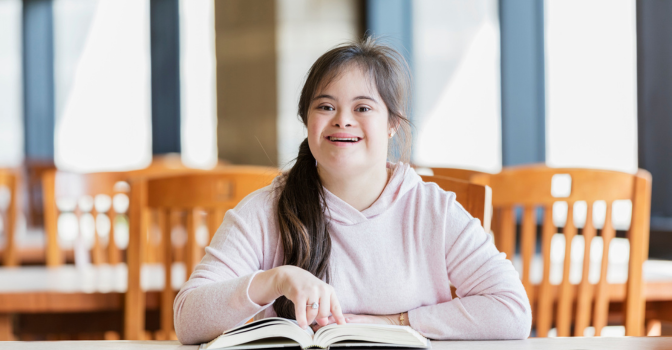Turning 18 is an important milestone in the life of any young person. It’s a time of excitement, change and mixed emotions for the individual and often for their family.
But what happens when a young person on the NDIS turns 18? And how can the NDIS provide support through transitions at this age and beyond?
Today, we’re looking at key changes, including decision making and plan reassessments, and how to get the right supports.
Preparing for independence.
Studies show that youth with disability have similar aspirations to their peers without disability – they’re seeking freedom, independence and the ability to make their own decisions. [1]
A lack of independence can be frustrating for teenagers with disability, especially for people who require assistance with everyday tasks, self-care or transport.
Early transition planning and clear communication are valuable strategies for managing this rite of passage and supporting teens to become more responsible and independent.
Turning 18 and independent decision making.
Under the law, a person’s legal rights change when they turn 18. Parents or guardians no longer have parental responsibility and the person becomes responsible for their own decisions. This includes young people with disability.
Every Australian adult 18 and over is presumed to have capacity to make decisions unless it can be legally demonstrated otherwise.
All adults 18 and over have the right to:
- Make their own decisions about every aspect of their lives
- Receive help to make decisions
- Say what they want to do
- Take risks and make mistakes
Supported decision making.
Some adults with disability may require support or assistance with making decisions, referred to as “supported decision making”.
Supported decision making provides an opportunity for the person to learn and build their decision making capabilities. It can take many forms and the role played by any family members or caregivers will depend on the person’s experience and abilities, as well as the complexity of the decision.
Under the NDIS, people with disability must be provided with access to any support necessary to help them make decisions. For people on the NDIS turning 18 who want to learn how to make decisions independently and need additional support, the NDIS can include funding under Capacity Building in their NDIS Plan.
How NDIS nominees can help.
A nominee is a person appointed to act or make decisions on behalf of someone on the NDIS aged 18 or over. Nominees can be set up for a short time while the person builds skills. Appointing a nominee can be part of a transition plan to independence when a person turns 18 if they’re not yet ready to manage their plan.
The timeframes for appointing a nominee vary according to how a person’s plan is managed and can be quite specific. For more information, see the NDIS Guardians and nominees explained page.
There are two types of nominees:
- A correspondence nominee can make decisions about a person’s business with the NDIS, such as getting information and receiving letters. They can’t manage NDIS funds or make decisions about the person’s plan.
- A plan nominee can do everything the NDIS participant can do, including making decisions about how to use funding, making plan changes and managing budgets.
Turning 18 is a good time for a plan reassessment.
he transitions at age 18 are significant, especially regarding school, work and further study, so a new NDIS Plan may be needed.
It’s a good idea to request a plan reassessment before the person turns 18 to ensure their NDIS Plan reflects their goals. It also allows additional time to put new supports in place.
The NDIS can provide many different supports that may be relevant at this time, depending on the person’s goals.
- Help students with disability who are about to or who have recently left school find and start a job (see School leaver employment supports).
- Supporting the move from school to further education (see Study supports and the NDIS).
- Assist in developing a career pathway, transitioning to work, career planning and on-the-job support through NDIS employment supports.
- Make the transition to living more independently in a location and with people of their choosing through Individualised Living Options.
- Improving skills to help the person become more independent, build confidence and participate more actively in the community through the Increased Social and Community Participation – Capacity Building budget.
Get your free Planning for the future ebook!
Leap in! has developed an ebook designed to help families prepare for the future together.
Future planning: A guide for parents and carers has been designed to provide essential information to assist with major transitions, including school to work or study.
Get crucial information about goal setting, options for independent living and legal and financial consideration…among other things!
[1] Mary McMahon, Australian journal of career development, Aspirations held by young adults with intellectual disabilities and their mothers, 22 June 2022.
[2] NDIS, Operational Guidelines – Nominees, current as of 25 March 2022.
Get in touch with Leap in!
Call us on 1300 05 78 78, visit our website, email crew@leapin.com.au or chat with us online.

